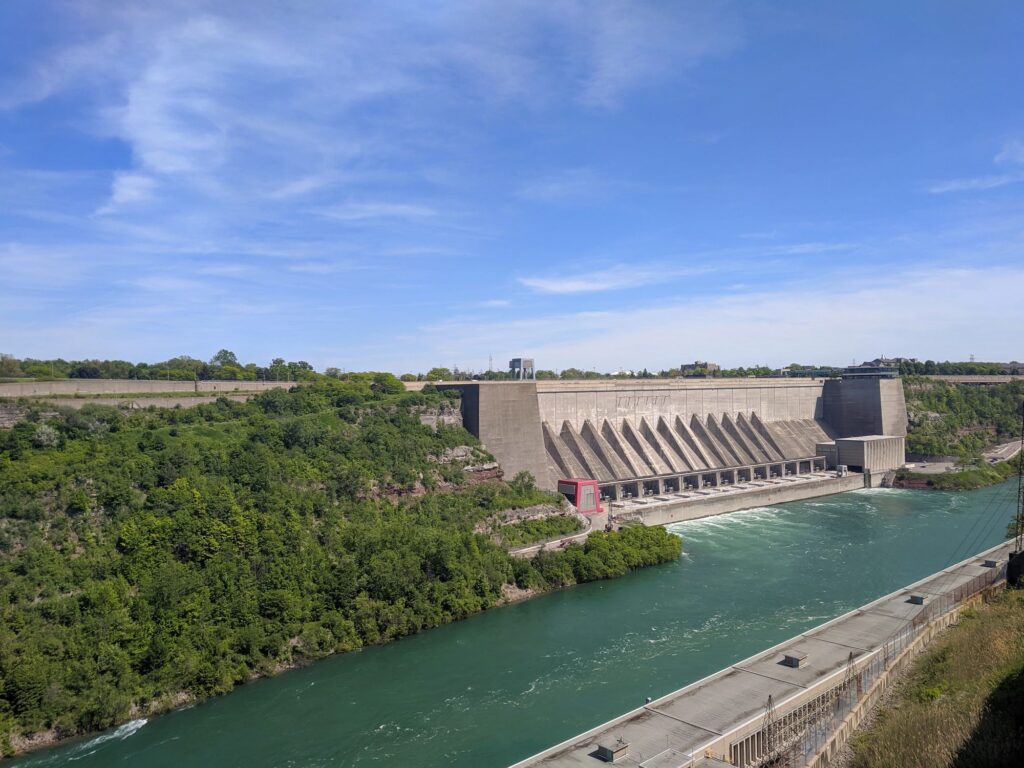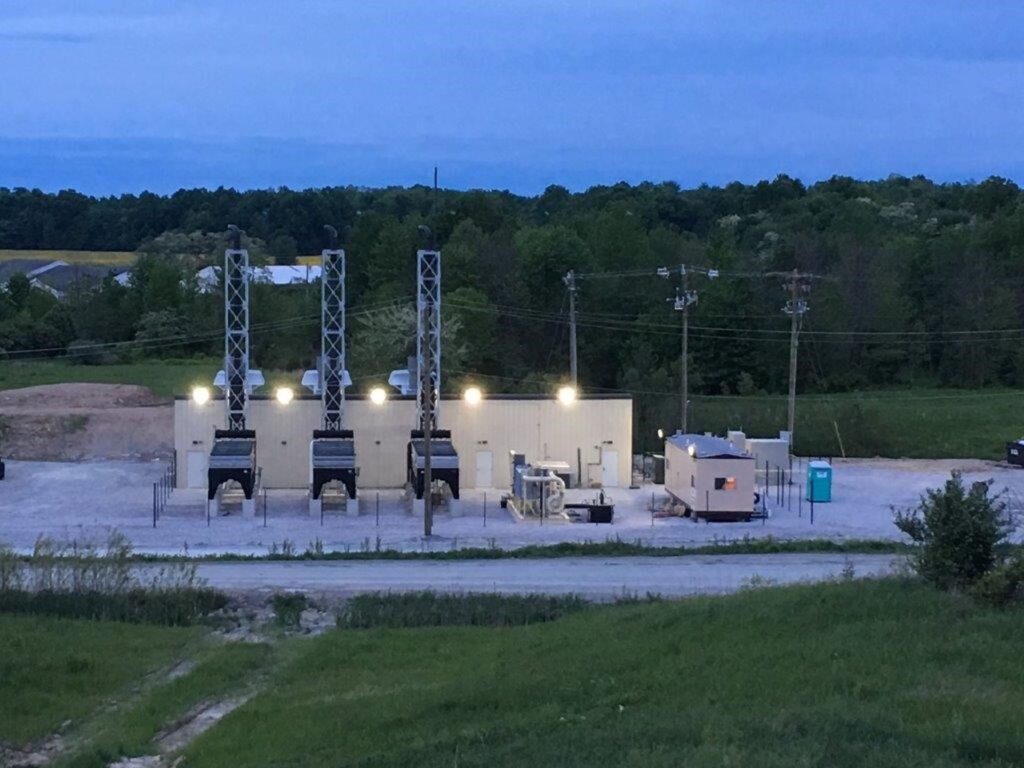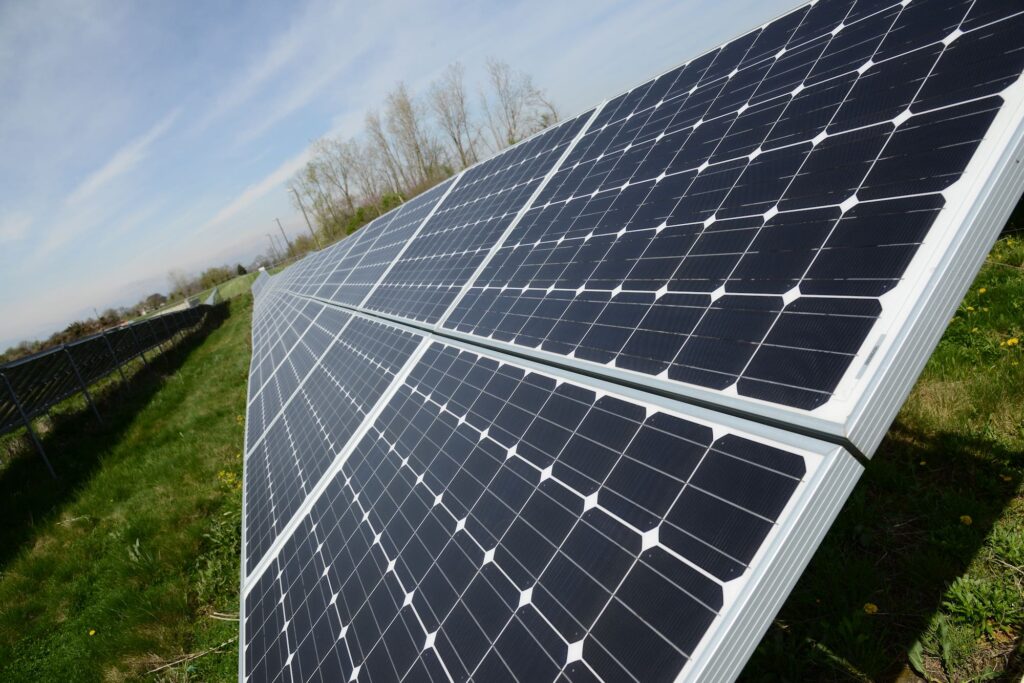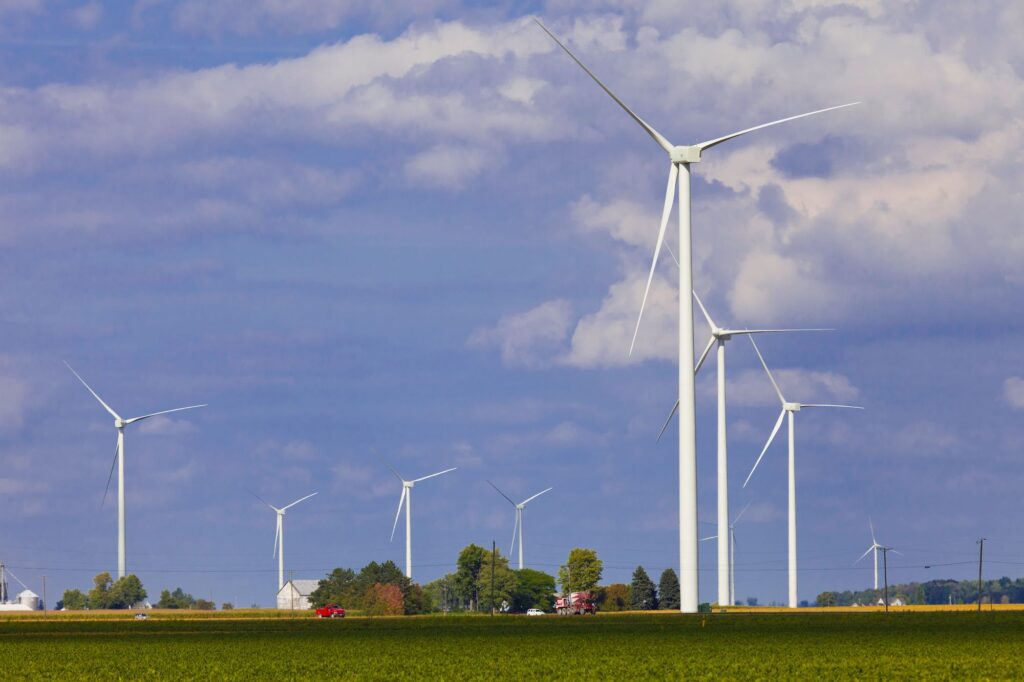Power Purchase Agreements
On behalf of its Members, AMP secures long-term power purchase agreements (PPA) with power suppliers in order to secure a supply of energy at prices that will remain steady and not be subject to the volatility of the short-term market. As with other power supply projects, AMP Members have the option whether to participate in the PPAs.

Hydroelectric
New York Power Authority (NYPA): About 3 percent of American Municipal Power, Inc.’s (AMP) energy portfolio comes from renewable* energy from NYPA’s two federal hydro projects in New York — the Niagara Project (built in 1961) and the St. Lawrence Project (built in 1958). Through this PPA, energy is distributed to 74 participating Members in Ohio, based on the total number of residential meters in 2002.
Southeastern Power Administration (SEPA): Established in 1950, SEPA generates power at 22 dams across the southeastern United States. AMP schedules and delivers 9 megawatts (MW) of total power from the Philpott and Kerr hydro plants in Virginia to four AMP Member communities in Virginia.

Landfill Gas
Among the first renewable energy resources adopted by AMP on behalf of its Member communities was the use of landfill sites in Ohio to provide a steady source of baseload generation.

AMP has contracted with Waste Management for 6.4 MW of methane-gas-generated power at the Geneva Landfill (Geneva) and the Mahoning Landfill (New Springfield); with Ohio Renewable Energy Services (ORES) for 2 MW of methane-gas-generated power from the Erie County Landfill (Milan); and with EDI for the purchase of 4 MW of methane-gas-generated power from the Brown County Landfill (Georgetown). Five AMP Member communities in Kentucky and Ohio receive landfill gas power through AMP.
These sites are fueled by landfill gas, produced by decomposing garbage and collected by a series of pipes throughout the landfill for use as a fuel in either a gas engine or gas turbine generators. Landfill gas is a mixture of gases, with the largest component being methane. Solid waste landfills are the second largest human-generated source of methane emissions, according to the Environmental Protection Agency.
Landfill Gas Facts
Solar
AMP Solar Phase II Project: Through its DG AMP Solar, LLC subsidiary, Next Era built, owns and operates 16 solar sites, all of which are located behind participating Members’ meters. AMP purchases all output from the solar generation, about 58.325 MW, and sells it to the 22 participating Members in Delaware, Michigan, Ohio and Virginia under a take-and-pay contract. Learn more about AMP Solar Phase II Project here.

Wind
Locust Ridge Wind Project: AMP has contracted with Avangrid Renewables to supply 100 MW of wind power from 50 turbines in north central Pennsylvania to 16 AMP Members.
Blue Creek Wind Project: AMP has contracted with Avangrid Renewables to supply renewable energy from the 304-MW Blue Creek Wind Farm in northwest Ohio, which features 152 turbines. Over the length of the contract, which extends to 2029, 25 AMP Members from Maryland, Ohio, Pennsylvania and Virginia are participating in the project.

*Note that AMP, on behalf of its Members, sells all or a portion of the renewable energy certificates created by its renewable energy projects, power purchase agreements and joint ventures to help reduce its wholesale power costs.

